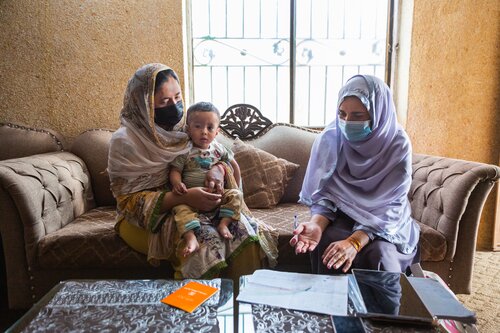UHC2030 is excited to welcome several new and distinguished...
23 January 2024
A statement from UHC2030’s co-chairs ahead of the OECD Health Ministerial Meeting

Today, on 23 January, OECD members are meeting in Paris for the OECD Health Ministerial Meeting to discuss the legacy and lessons learned from the COVID-19 crisis, the health policy challenges lying ahead, and the actions needed to address them. As health ministers enter their discussion under the theme “Better Policies for More Resilient Health Systems", we call on them to focus on concrete action towards building equitable and resilient health systems – with primary health care as a foundation – as the most effective way to make progress both towards universal health coverage and health security.
Previous shocks have clearly shown the need for resilient health systems. Countries with resilient health systems are better prepared to prevent and respond to health threats, including outbreaks with pandemic potential or climate change-related extreme weather events.
But health systems should not only be resilient; they must also be equitable. People in low-income countries and vulnerable communities, including women and children, are the hardest by recent infectious outbreaks or climate change-related events. They endure the most substantial health impacts and often lack access to the high-quality, affordable health services they need and deserve. If health systems do not account for the needs of the most vulnerable and marginalized, the world will fail to achieve health for all.
Universal health coverage means that all people have access to the full range of quality health services they need, when and where they need them, without financial hardship. As health ministers exchange on health systems strengthening, we call on them to focus on actionable steps to increase the equity of their health systems by reorienting them towards a primary health care approach. Integrating health services at the primary care level ensures that nearly 90% of essential health services can be provided, thus addressing people's diverse health needs.
Building equitable and resilient health systems to achieve universal health coverage is not possible without adequate financing. We urge OECD health ministers to focus on increasing and stabilizing public spending on health and strengthening financial protection so that health systems can serve the needs of everyone, everywhere. This includes strengthening international cooperation and mobilising official development assistance to support efforts to build and strengthen capacities in developing countries, in line with the Political Declaration that was adopted by Member States at the UN high-level meeting on universal health coverage in September 2023.
This is a unique chance for health ministers to build on each other’s experiences to take concrete action. If health ministers get it right, they can build equitable and resilient health systems ready to address everyone’s health needs, everywhere.
Photo: WHO / HRP / Saiyna Bashir
